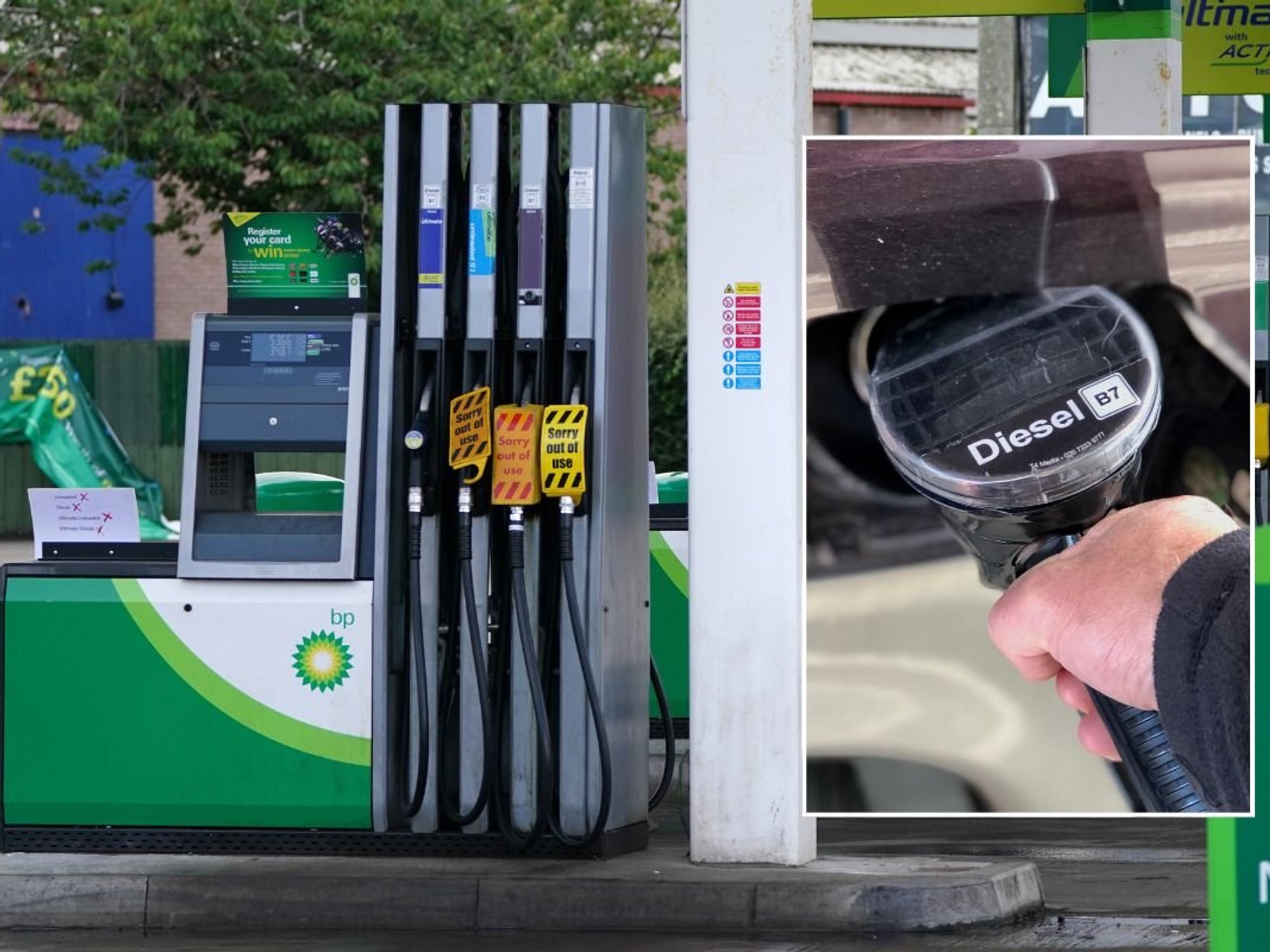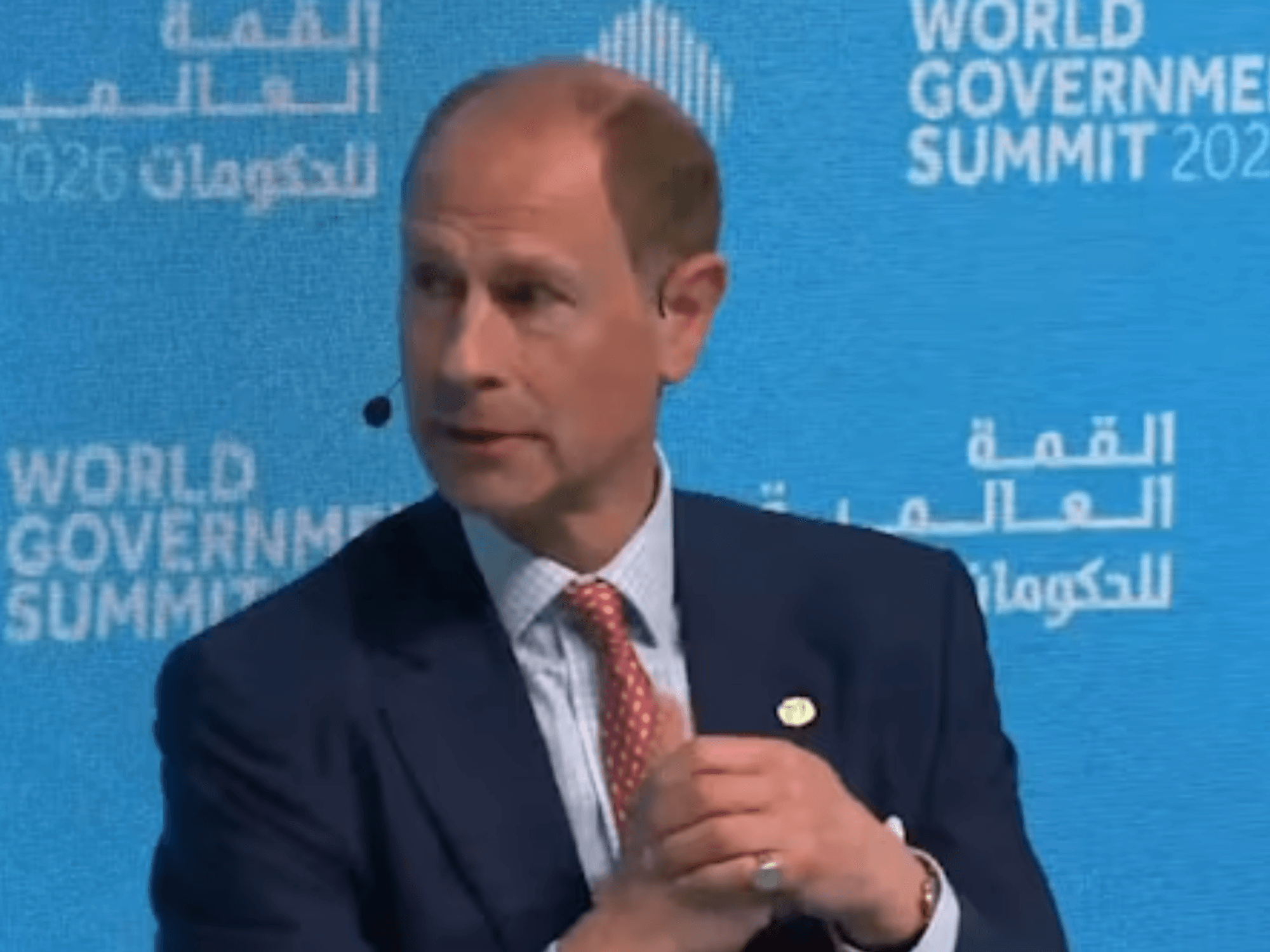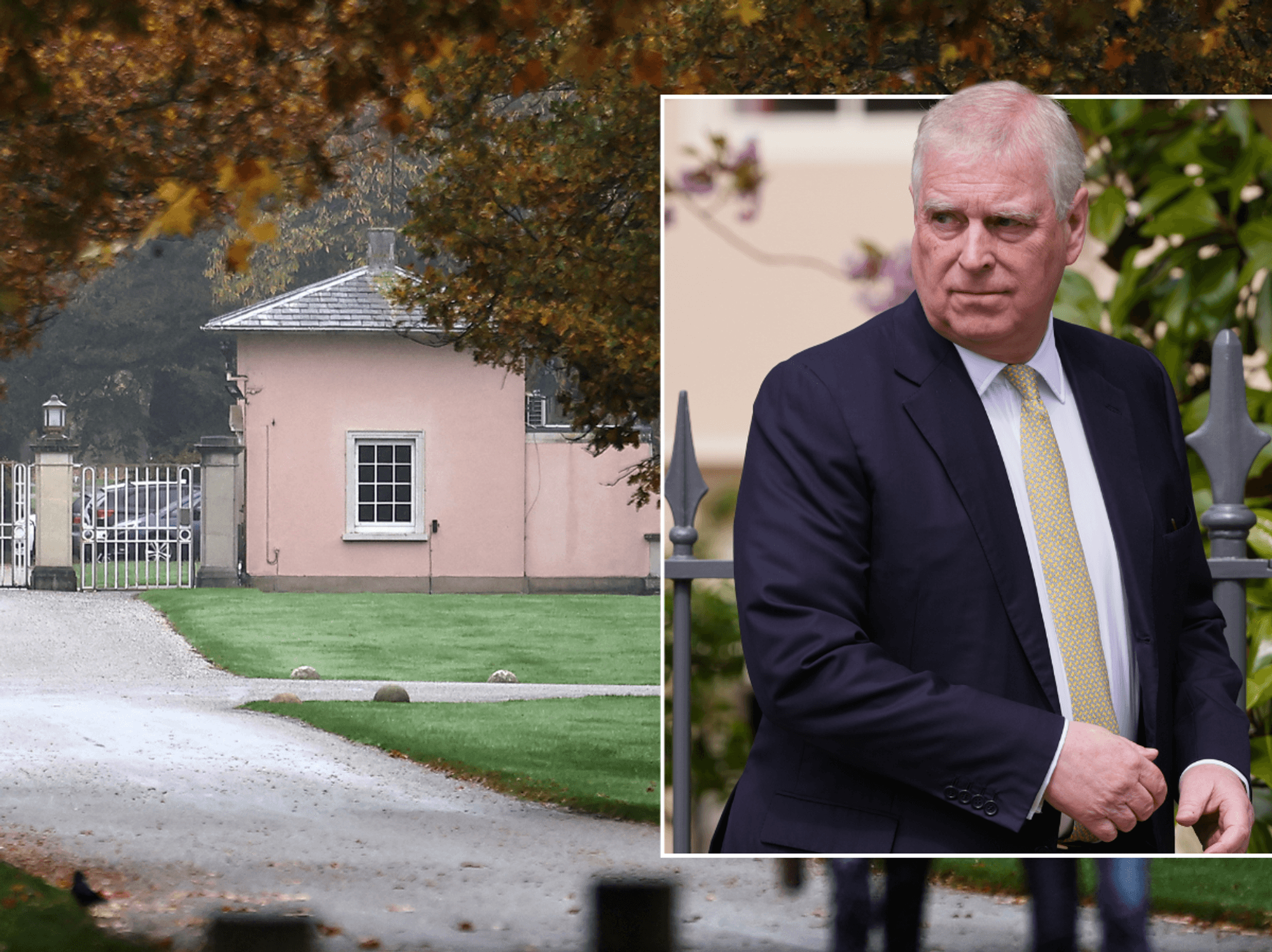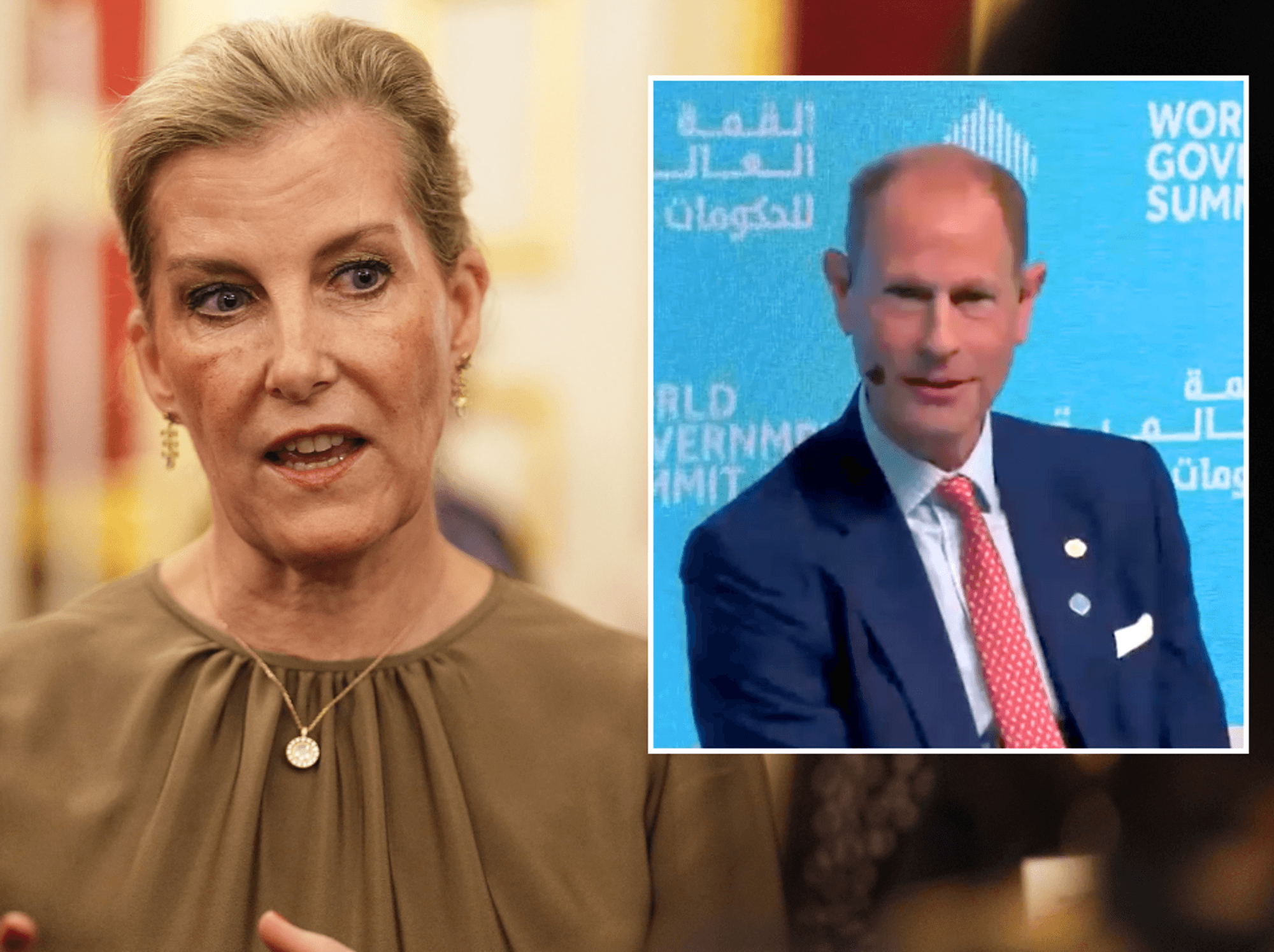Inside Ursula Von der Leyen's fight for re-election after outlining plan to overhaul EU
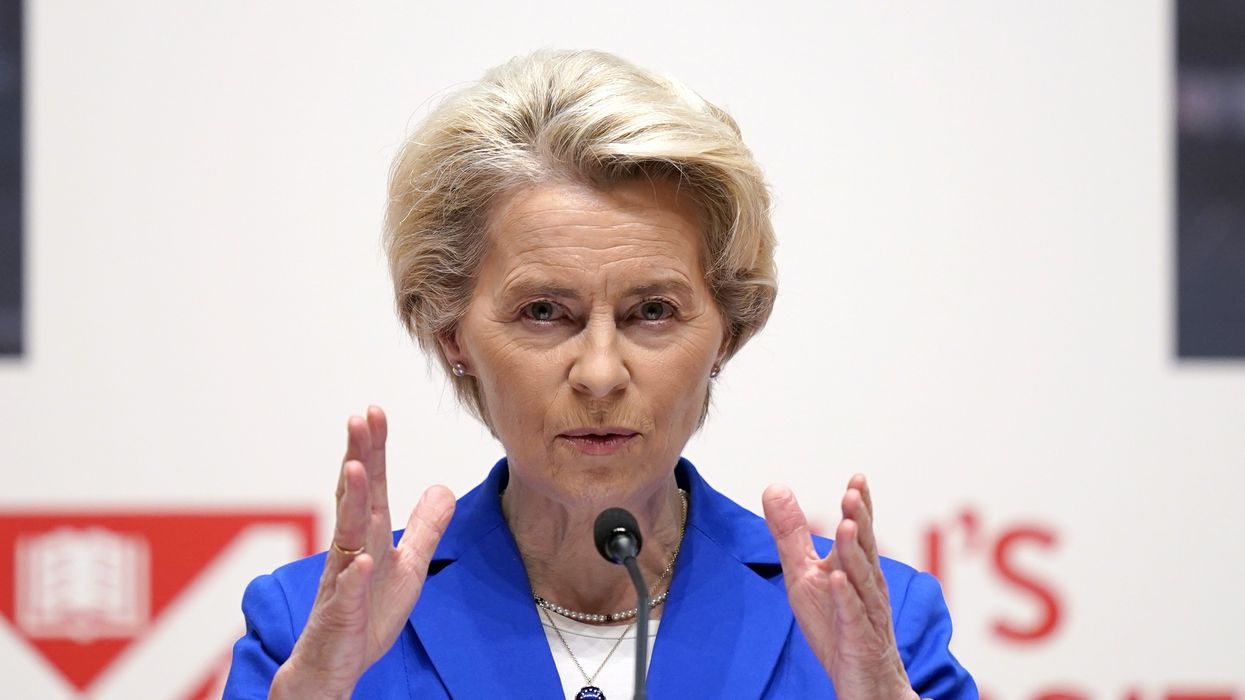
Ursula Von der Leyen announced her bid to run for a second term as European Commissioner earlier this week
|PA

GB News takes a deep dive into the European Commission President's fight to remain in charge
Don't Miss
Most Read
Latest
Ursula Von der Leyen has begun her fight to secure a second term as European Commission President. From pitching herself as the compromise candidate to trying to secure right-wing backing by taking a tough stance on migration and EU self-defence, the incumbent President's path to victory will be nothing if not carefully calculated.
She announced her bid to run for a second term as European Commissioner earlier this week at an event held by her Christian Democratic Union (CDU) Party in Berlin. She spoke with nostalgia on her last election campaign, saying: "I ran in 2019 because I firmly believe in Europe. Europe is home to me. And when the question came up back then as to whether I could imagine becoming president of the European Commission, I immediately said ‘yes’ intuitively."
She added: "Today, five years later, I am making a very conscious and well-considered decision: I would like to run for a second term."
Conscious and well-considered it certainly was. Von der Leyen has been peeling back unpopular policies for months now, removing any proposals that could cost her votes at June's European election.
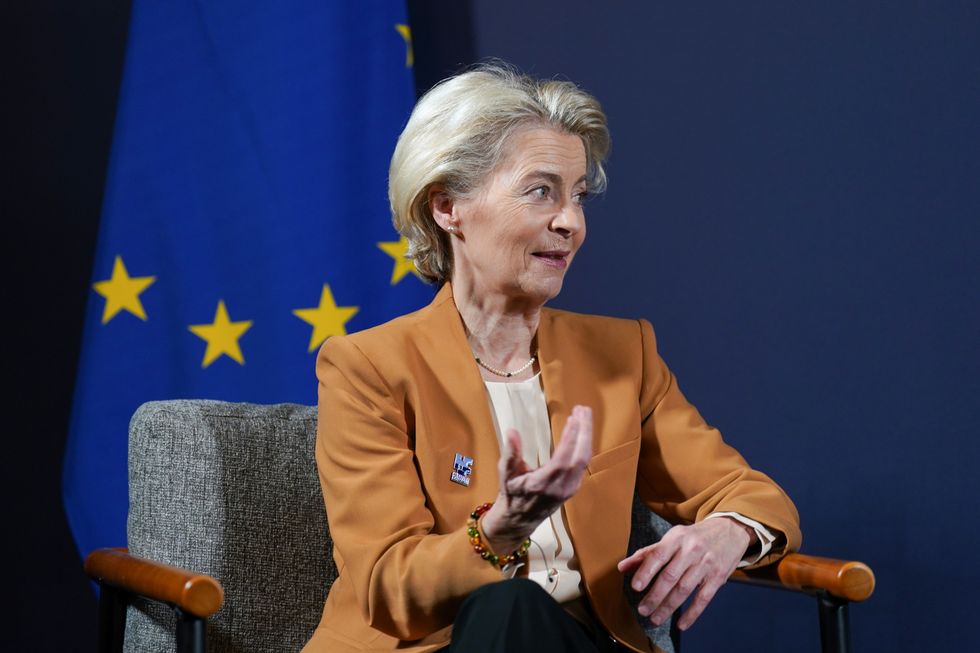
Von der Leyen has been peeling back unpopular policies for months now, removing any proposals that could cost her votes at June's European election
|PA
She has taken the axe to anything that smacks of overreach by Brussels, such as culling one of her key agricultural policies - legislation to cut down farmers' reliance on toxic chemical pesticides. The proposals, which have already once been rejected by the EU parliament, were met with strong opposition from chemical and farming lobbyists - and also drew attention amid farming protests sweeping the bloc.
The European Commission President has also been slowing chipping away at her prized Green Deal as a result of broad and vocal opposition.
But we've seen this before with Von der Leyen.
Von der Leyen: The 'compromise candidate'
According to Dr Denny Pencheva, a lecturer in European Public Policy and Politics at the University of London, the last time she was on the ballot paper in 2019 Von der Leyen managed to market herself as a "compromise choice".
"She went on to promise little bits and bobs to everyone. And I think that made her more palatable and she was seen as a viable compromise", Pencheva explained to GB News.
The former German defence minister had the appearance of someone who might be able to deliver "a little bit for everyone".
While her current approach is perhaps an updated version of this - stripping things back from her existing policies, rather than focussing on offering up new ones, the impact is the same.
When she ran for election in 2019 and won, she was not the European Peoples Party's (EPP) lead candidate. But Manfred Weber, who took the top billed spot, was simply unable to persuade voters that he was the right man for the job. Something shapeshifting Von der Leyen was able to do.
Clearly, she still possesses this impressive ability to manoeuvre herself into a position which appeases the largest number of people. Once again, she is already setting herself up to be a compromise candidate.
After five years of rule by Von der Leyen, the EPP has been persuaded to back her as their main candidate - a significant vote of confidence in the incumbent president. But this doesn't necessarily mean that she is guaranteed support from every party in the umbrella group.
France’s conservative party Les Républicains, for example, has said they will not be supporting her bid for a second term.
Francois Xavier-Bellamy, head of the LR list for the EU elections, warned that her record "does not match up to what Europe expects today".
Stressing that Von der Leyen is Macron's "candidate", he said: "We did not support her in 2019. We will not support her in the coming election".
He accused the commission president of presiding over an agenda of "complaints, complexity and control", saying: "The time has come for a new majority in the European Parliament to put things back on the right track."
The main gripe cited by Xavier-Bellamy relates to agricultural policy, including the law on nature restoration, a text that had been strongly opposed by EPP MEPs.
While an agreement was reached in November, the final text was much weaker compared to its initial version.
But this watering down of policies and shifting to please everyone is unlikely to be seen across the board.
Defence spending and migration controls: Could a right-wing wave sweep Von der Leyen into victory?
The EU chief is expected to fight a strong campaign, focussing on both defence spending and control of the EU's borders.
The former German defence minister - who already has an edge in this field given her employment history - put defence at the forefront of last week's speech announcing her upcoming campaign.
Unveiling plans to install a "commissioner for defence" if she wins a second term, Von der Leyen said the EU must be prepared to "defend against divisions from within and from outside".
She added: "I am sure that we have the strength to do so, and that is the task that I have set for myself."
But as well as a strong rhetoric on defence, the EPP candidate is also expected to put a strong emphasis on her ability to protect and police the EU's borders when it comes to migration.
With the growth in popularity of right-wing parties across the bloc, Von der Leyen has her work cut out for her. But the conception that a boost for the far right in Europe will be a problem for Von der Leyen is false, Pencheva says.
Support for Eurosceptic parties on the right wing of was present at both the 2014 and 2019 EU elections. But she said these spikes in support for the right-wing have since translated to a "very notable right-wing shift" across the bloc, not just in terms of incumbent national politics, but also supranational politics.
This, she said, might work in Von der Leyen's favour.
While Von der Leyen has faced criticism and found herself in clashes with figures on the right, such as Hungary's Viktor Orban, the incumbent EU President has not shied away from right-leaning policies herself.
In addition to creating a new national portfolio, titled "Protecting our European Way of Life" - which was quickly rebranded into "Promoting our European Way of Life" after it faced backlash for being too exclusionary and nationalist - Von der Leyen has also been quite publicly friendly with Giorgia Meloni, Italy's President who has led the way when it comes to pushing for border controls and caps on migration.
And in yet another sign that her re-election bid has been in the works for some time, Von der Leyen announced a historic package of measures earlier this year to crack down on migration coming into the bloc.
The Migration Pact was approved by EU ambassadors earlier this month. It proposes the detention of migrants for up to six months in some cases, as well as the detention of unaccompanied minors deemed to be a security risk.
But former MEP and ex-Ukip leader Nigel Farage was more sceptical of how much support this would gain her in the long term. He said the migration plans are simply an attempt to "stop the eurosceptic surge" - but claimed it wouldn't succeed.
He explained: "The idea of these big detention centres on the coast, this is just stuff being said to stop the eurosceptic surge. I doubt the ECHR will allow any of that to actually happen.
"It all began with the lovely theory of the Schengen area and open borders. It's had huge social consequences and now it's led to the wider realisation that you're not in control."
Themistoklis Asthenidis, the former Political Director of the European Conservatives and Reformists Party (ECR), seemed to agree, suggesting that the broader shift to the right seen across the EU appeals to people for too wide a selection of reasons to be tackled by one or two flagship policies.
He said: "It has been growing in Europe since at least 2011, 2012 - in each country for different reasons. It's not directly related to a political persuasion, like left or right. You see Podemos and Vox in Spain, on the left and the right, both eurosceptic.
"There are a number of factors that have seen Euroscepticism grow. It’s migration, economic crises such as what happened in the Eurozone, attacks on social institutions".
He added: "This won't be swept away overnight."
MORE CONTENT FOR GBN MEMBERS:
What next?
Clearly, Von der Leyen has a lot to contend with. But what can the EU expect if she wins?
A win for Von der Leyen doesn't necessarily just mean more of the same for the EU. In fact, a win for Von der Leyen could make an already decisive EU leader even more decisive.
If she is elected for a second term, she will have been elected by a qualified majority of EU member states, and then the European Parliament will have confirmed the decision through an absolute majority. The symbolism of such a stringent democratic process is significant and could serve to dispel allegations of a democratic deficit when it comes to Von der Leyen's appeal.
Pencheva said a victory for Von der Leyen this year would be "an important win" for the incumbent EU Commission President.
"It will signify that she was the right choice all along, and it might kind of strengthen her mandate and her position - which is already the most powerful position in EU politics", she explained.
The academic added: "It might also be helpful in tackling any allegations around democratic deficits - something the British press is very keen on talking about... so it might be just an act of legitimisation for her."
Von der Leyen is already seen to be a decisive leader. While she is far from being universally popular, she commands respect in her role and is confident in making political decisions - even ones that upset certain factions within the bloc.
There's a high chance that a victory for Von der Leyen this year could only add to her remit as a decisive leader in the EU.
And while we are likely to see a campaign focussed on consensus, an election victory for Von der Leyen could mean her characterisation as a "compromise candidate" is unlikely to stick around.






